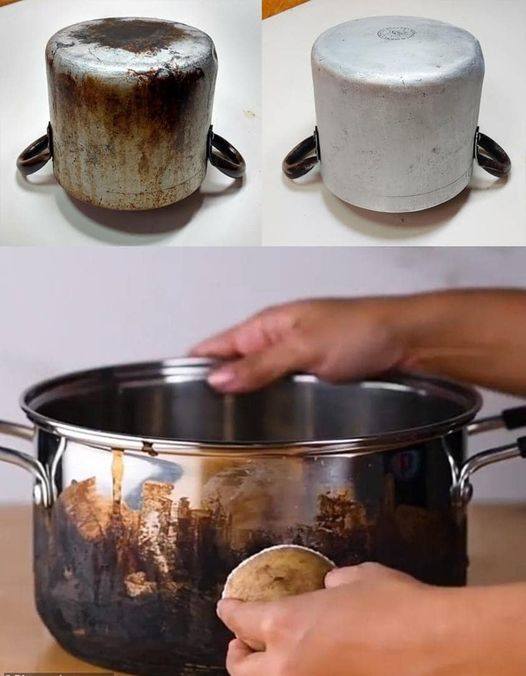ADVERTISEMENT
Fill the pot with water: Pour enough water into the pot to cover the burned area. If necessary, add a little more water to cover the higher areas.
Add white vinegar: Add a quarter cup of white vinegar to the water. The amount can be adjusted depending on the size of the pot or pan.
Add salt: Add two heaping tablespoons of salt. This will help loosen the burn.
Boil the mixture: Bring the pot to a boil. As the water begins to boil, you will notice that the burnt residue gradually comes off. Let it boil for a few minutes.
Cool the pot: Once you have turned off the heat, let the pot cool completely to avoid burns during washing.
Remove the water: When the mixture has cooled, throw away the water. You will notice that much of the burn has already come off (about 60 to 70%).
Scrub with soap: To remove the remaining residue, apply soap and use a soft cloth or a regular sponge. If the burn is minor, you will only need the regular sponge. Scrub until all the burn is gone.
Final Result: When you scrub, you’ll notice that the burn has been removed by more than 90%, leaving your pot or pan almost like new.
This trick is simple, effective, and uses common ingredients. If it worked for you, feel free to share your experience.
Tips
Here are 4 additional tips to improve the results when removing burns on pots and pans:
1. Use baking soda for tough stains
If after boiling the vinegar and salt mixture there are still burnt remains, sprinkle baking soda on the stain and scrub with a damp sponge. Baking soda is an excellent mild abrasive that helps remove stains without scratching.
2. Let the hot mixture sit
Once you’ve boiled the water, vinegar, and salt mixture, turn off the heat and let it sit in the pot for at least 30 minutes. This will allow the heat and ingredients to work longer, loosening the most stubborn stains.
3. Try lemon for odors
If in addition to burns, the pot has a persistent smell, cut a lemon in half and rub it directly on the burnt spot. The citric acid in lemon not only helps clean, but also eliminates unpleasant odors.
4. Don’t use abrasive scouring pads
Avoid using metal fibers or very hard scouring pads, as they can damage the coating of your pots and pans. Always opt for soft sponges or fibers that are safe for the material of your cookware.
ADVERTISEMENT
